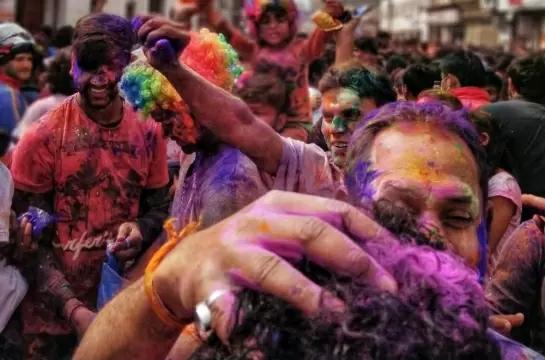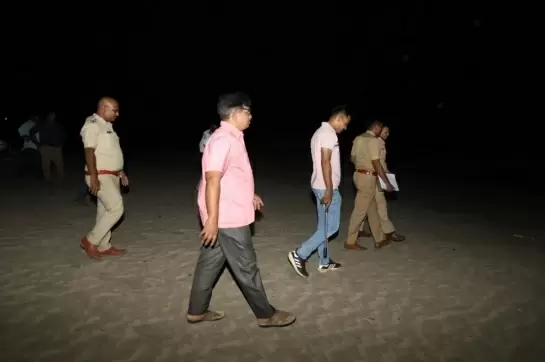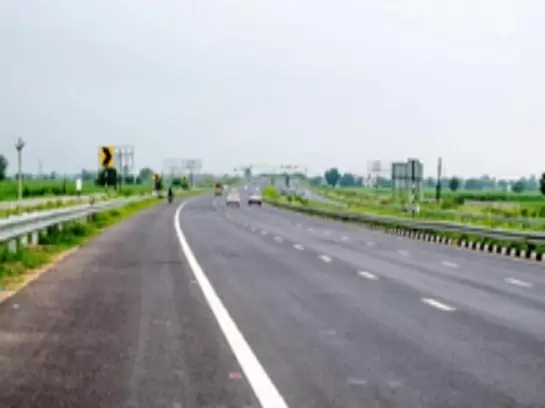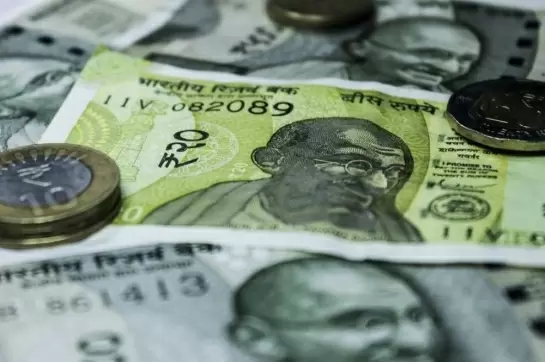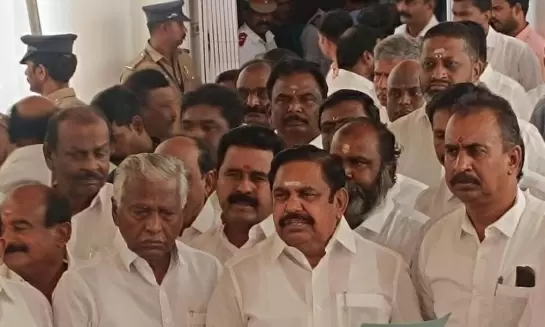Politics of colour blooms in Uttar Pradesh
Lucknow
11-July-2021

Photo: IANS
As soon as you alight from a train or an aircraft in Lucknow, the first signage that greets you says, "Muskuraiye ki aap Lucknow mein hain".
Lucknow is, perhaps, the only state capital in the country where the politics of colour dominates the development of the city.
The dominant colour in the city has become synonymous with the political party in power.
The politics of colour was initially started by the Bahujan Samaj Party in 2007 when it came to power with a comfortable majority of its own.
For BSP supremo Mayawati, this was the time to go blue with a vengeance.
All road railings and signage were painted blue, traffic constables also got a change of uniform -- white shirt and blue pants.
Watch This TWL Video
The official directory of the state information department also came with a blue cover and government hoardings had a blue background.
The stage for all programmes attended by the then chief minister, was draped in blue.
The BSP rallies were known for men painting their bodies in blue and elephant replicas in blue.
In fact, the blue shade of the BSP came to be popularly known as �BSP blue' and you could get the right shade of cloth or ribbon by just saying �BSP blue'.
When the Samajwadi Party came to power in 2012, the first decision taken by its Chief Minister Akhilesh Yadav was to change the colour of signages to green.
The blue colour flew off the railings and road dividers and an emphatic green replaced it.
The Samajwadi Party workers wore their red caps to flaunt their new found power and also their status in the government.
The official directory turned green - with a tinge of envy perhaps.
Personally, however, Akhilesh Yadav showed no liking for either green or red -- the colours of his party -- and preferred pristine white instead.
His official and personal residences were done up mostly in shades of white. His official residence as former Chief Minister, that was later vacated by him and even created a huge controversy, had come to be known as �White House'.
The walls, flooring, furniture, curtains and upholstery were all white and, expectedly, not many were allowed entry into the spotlessly clean house.
When the BJP returned to power last year, its Chief Minister Yogi Adityanath almost shunned the party colours in the sense that he did away with the green and retained only saffron.
It was then time for a change of politics and, of course, colour when the BJP and Yogi Adityanath stormed into power in 2017.
Knowing the Chief Minister's penchant for all things saffron, the state bureaucracy went into an overdrive and got saffron curtains, saffron towels, saffron diaries, saffron hoardings and saffron flowers for government programmes.
The trend continues with hospitals and schools being given a saffron coat of paint and even some of the toll plazas were painted saffron. Toilets, too, got a saffron coat of paint.
Uttar Pradesh minister Siddhartha Nath Singh, however, defends this "rang de tu mohe gerua" syndrome and says, "Saffron is a colour that denotes positivity. The rising sun is saffron in colour. What is the problem if we want to bring positivity into the government?"
A retired bureaucrat admitted that a huge amount of money is spent on change of colour.
"I remember when Yogi Adityanath took over, we had a problem in getting saffron towels. However, we managed to get hold of a dyer who dyed white towels into saffron almost overnight. The upholstery was changed in almost all guest houses to match the chief minister's saffron mood. Some bureaucrats tend to go into an overdrive over such issues to please the political bosses and public money is wasted," he said.
Ramesh Dixit, a retired professor of political science, explains the trend.
"The parties that pursue the politics of colour want their voters to identify with colours. This makes it easy for them to campaign with T-shirts and 'gamchas' in the colours of their party. Another fact is that the bureaucracy in the state has made a great contribution by promoting this colour politics. They are the ones who go into an overdrive to please their political bosses. They use this to justify the huge amounts of money spent in replacing signages and re-painting railings and gates", he said.-IANS
More Headlines
AI Cybersecurity Startup Neural Defend Raises $600K in Pre-Seed Round
Chennai Doctor and Family Found Dead Amid ₹5 Crore Business Loss
Karnataka Withdraws CID Probe in Ranya Rao Gold Smuggling Case
New Kerala Guv Strikes Cordial Tone, Hosts CM Vijayan And FM Sitharaman In Delhi
Digital Payments Surge in India: 18,120 Crore Transactions in FY24-25
AI Cybersecurity Startup Neural Defend Raises $600K in Pre-Seed Round
Chennai Doctor and Family Found Dead Amid ₹5 Crore Business Loss
Karnataka Withdraws CID Probe in Ranya Rao Gold Smuggling Case
New Kerala Guv Strikes Cordial Tone, Hosts CM Vijayan And FM Sitharaman In Delhi
Digital Payments Surge in India: 18,120 Crore Transactions in FY24-25






